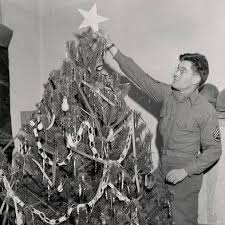It's been a year, hasn't it? A year unlike any other in recent memory for most of us. A year the vast majority of people are happy to see end in a few short weeks.
And things look better for 2021. With any luck, most of us can be vaccinated sooner rather than later in 2021, and life can gradually return to some normalcy.
As I reflect on this year, it's certainly easy to focus on all the things that changed, often dramatically. It's natural to be some combination of sad, angry and bitter about the missed opportunities, the grievous losses many people have endured, and the problems the country will obviously be faced with for some time to come, even after vaccines help us round the corner on the pandemic itself. I'm grateful that I thus far have been spared any personal losses and pray that continues. And since I work from home, my personal day-to-day life hasn't been upended in a major way. My heart hurts for what my children are missing -- they've each essentially lost a year at a formative time (sophomore year of college for my daughter and sophomore year of high school for my son). But in their young lives, this is but a blip. They will return to the normal fast-paced daily routines and the fun soon enough.
I can't help comparing the national resolve and spirit of the WW2 years with our current stark divide in approaches to navigating these troubling challenges. Of course, I'm sure that there was more grumbling and push-back in the war years than the popularized rosy images of complete unity of spirit and purpose we see now. But even so, there's no denying that there are lots of people who might benefit from reflecting on the tribulations faced and sacrifices made in earlier times.
I was reminded of a lovely blog post from 3 years ago that a man wrote in tribute to his mother, who had served as a Red Cross Girl in Europe from 1943-45. He recounted a special table-top Christmas tree decorated with simple handcrafted decorations made from everyday items that he and his mother would put up each year. It was many years later before he understood the significance of that small, humble tree, which stood in such contrast to his family's far larger "real" Christmas tree in the front living room. His mom's wartime journal described the small simple tabletop tree she and her fellow Red Cross Girls created for themselves and the units they were attached to at the time in December 1944.

What her journal doesn't describe was that her clubmobile group likely had made a sudden move back into France from Belgium or Luxembourg. The Germans launched their Battle of the Bulge offensive in the early morning hours of December 16, 1944, and several Clubmobiles and crews were caught behind or very near enemy lines. Even the ones who had been situated reasonably back in western Belgium were forced to trek back into France for their safety. It took up to Christmas Eve for all the women to reach their units back in France.

Though happy to see the safe return of their friends, that Christmas was also marked with mourning for one of their own who had died while recuperating from a mild illness in a hospital that was bombed in the battle. The women also, as his blog described, continued to be profoundly affected by their work with soldiers who had been in the thick of battle and were left physically wounded and/or psychologically scarred. His mother often included photographs of "her boys" nestled into the Christmas tree -- that bitterly-cold and uncertain Christmas of 1944 lived powerfully in her memory for the rest of her life. If you wish to read the entirety of his blog post, it can be found here.
My hope for 2021 is that we regain some measure of the national unity that has been missing for too many years. I hope we all might put our recent challenges into a longer-view perspective, might recall the selfless spirit of the Greatest Generation, and be guided by kindness, generosity of spirit, and optimism for a brighter future.









